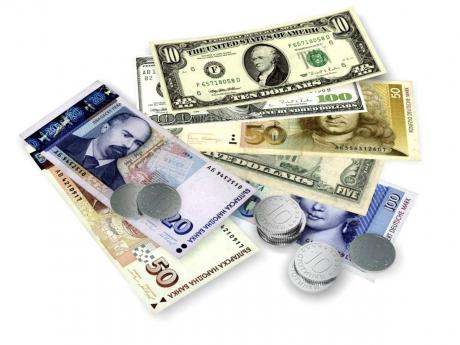Euro gains in global use, but dollar still dominates
The euro has gained ground as a global currency used for government reserves as US economic sanctions deter some countries’ use of the dollar, the European Central Bank (ECB) said in a report Thursday.
The euro’s share of measurable foreign reserves held by central banks and governments around the world rose 1.2 percentage points during 2018 to 20.7 per cent, reversing a declining trend.
The dollar’s share dropped slightly to 61.7 per cent. That is down more than seven percentage points from its peak level before the global financial crisis of 2007-2009.
“It’s primarily diversification away from the dollar, which benefits the euro,” ECB executive board member Benoit Coeure said.
The dollar, however, is still very much the dominant currency for international trade, borrowing and reserves, despite a slow diversification towards other currencies over recent years, most recently towards the Chinese yuan.
Factors affecting the dollar’s use include countries selling dollars to support their own currency, and US financial sanctions such as those against Russia, which has moved some holdings to other currencies to avoid US restrictions.
Russia sold about US$100 billion worth of US dollar-denominated assets in the wake of new rounds of US sanctions, making the euro Moscow’s main currency holding with 39 per cent of reserves. The United States has imposed sanctions over a raft of issues, including the annexation of Ukraine’s Crimean Peninsula, human rights abuses, support for the Syrian government, illicit trade with North Korea, election interference and cyberattacks.
China also slightly reduced its dollar holdings in the form of US Treasuries, by about US$60 billion, during a period of trade tension with the US, leaving its holdings at a still-massive US$1.1 trillion. The Chinese currency, a newcomer in terms of being a global reserve currency, doubled its share to just under two per cent. Other currencies used as reserves are the Japanese yen and the British pound, and to a lesser extent, the Canadian dollar and the Australian dollar.
Another reason dollar reserves declined is believed to be the sales of dollar assets by emerging-market countries that are trying to keep their national currencies from falling against the dollar.
The dollar is used for a broad range of purposes, including purchases of aircraft, oil and other goods traded internationally, as well as borrowing by companies and governments. Its dominant role translates to low financing costs for the US government due to demand for dollar-denominated assets, including government bonds. It can also bring less desirable side effects: use of the dollar as a safe haven during times of turmoil can raise the dollar’s exchange rate, making life harder for US exporters.
– AP

